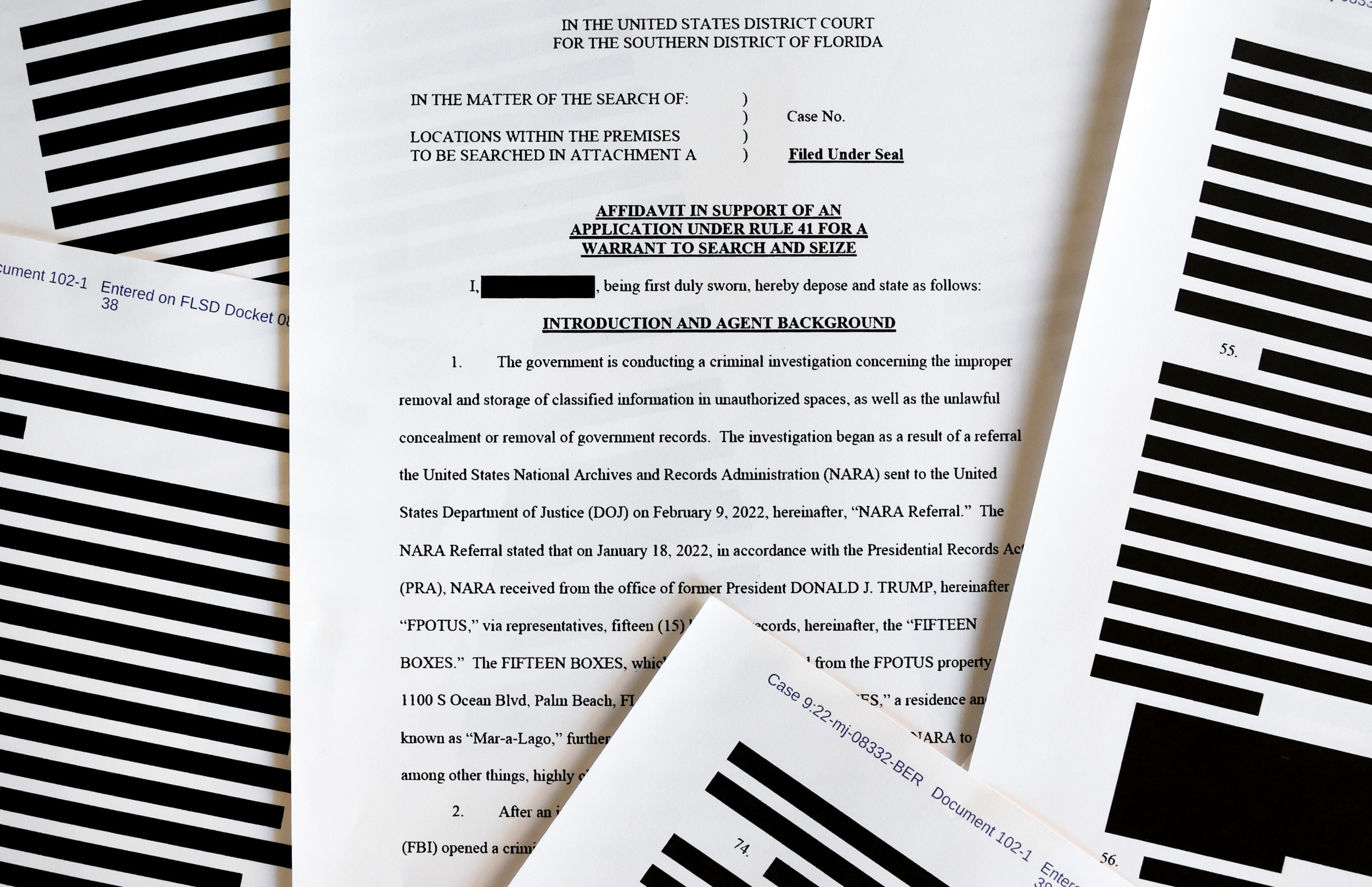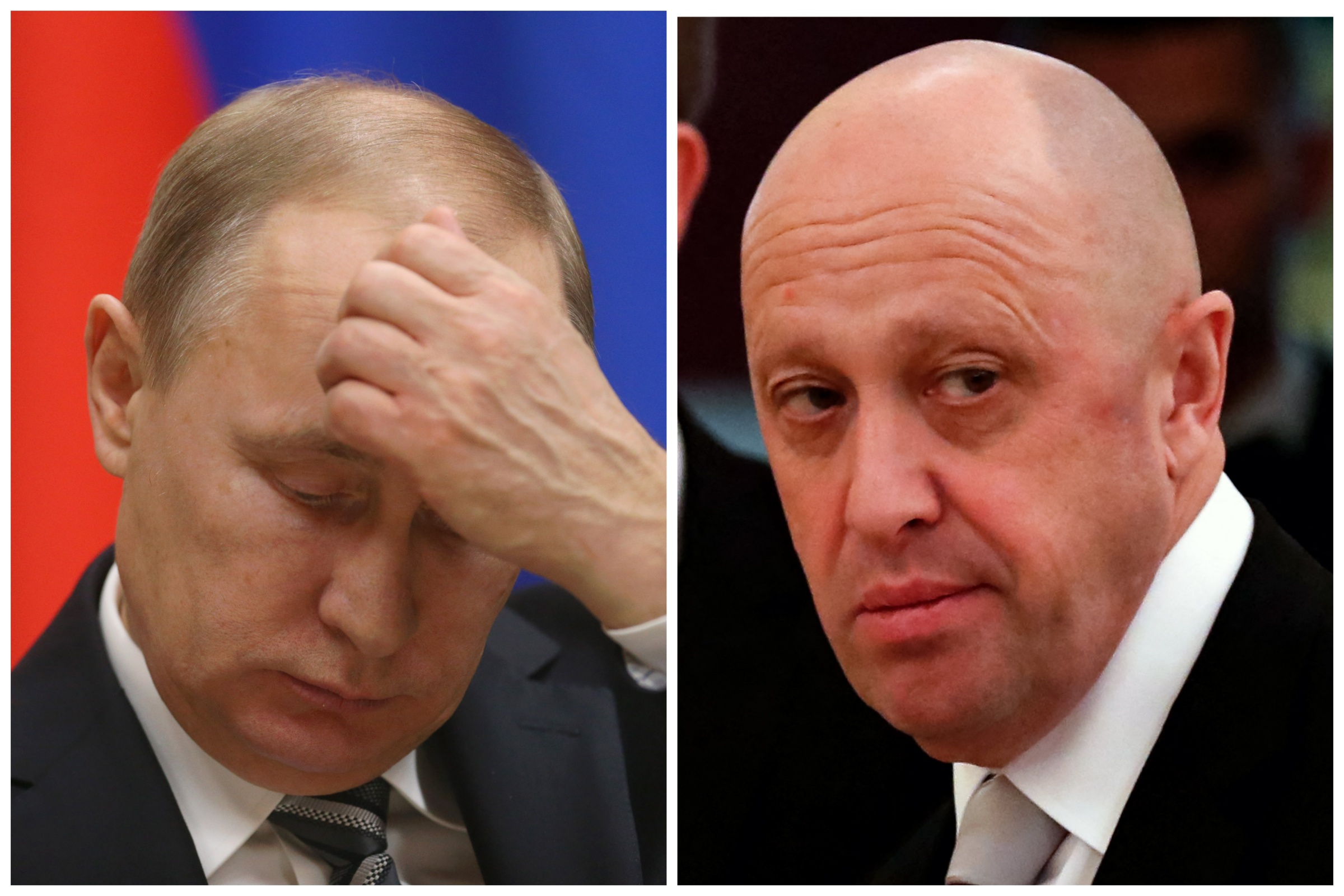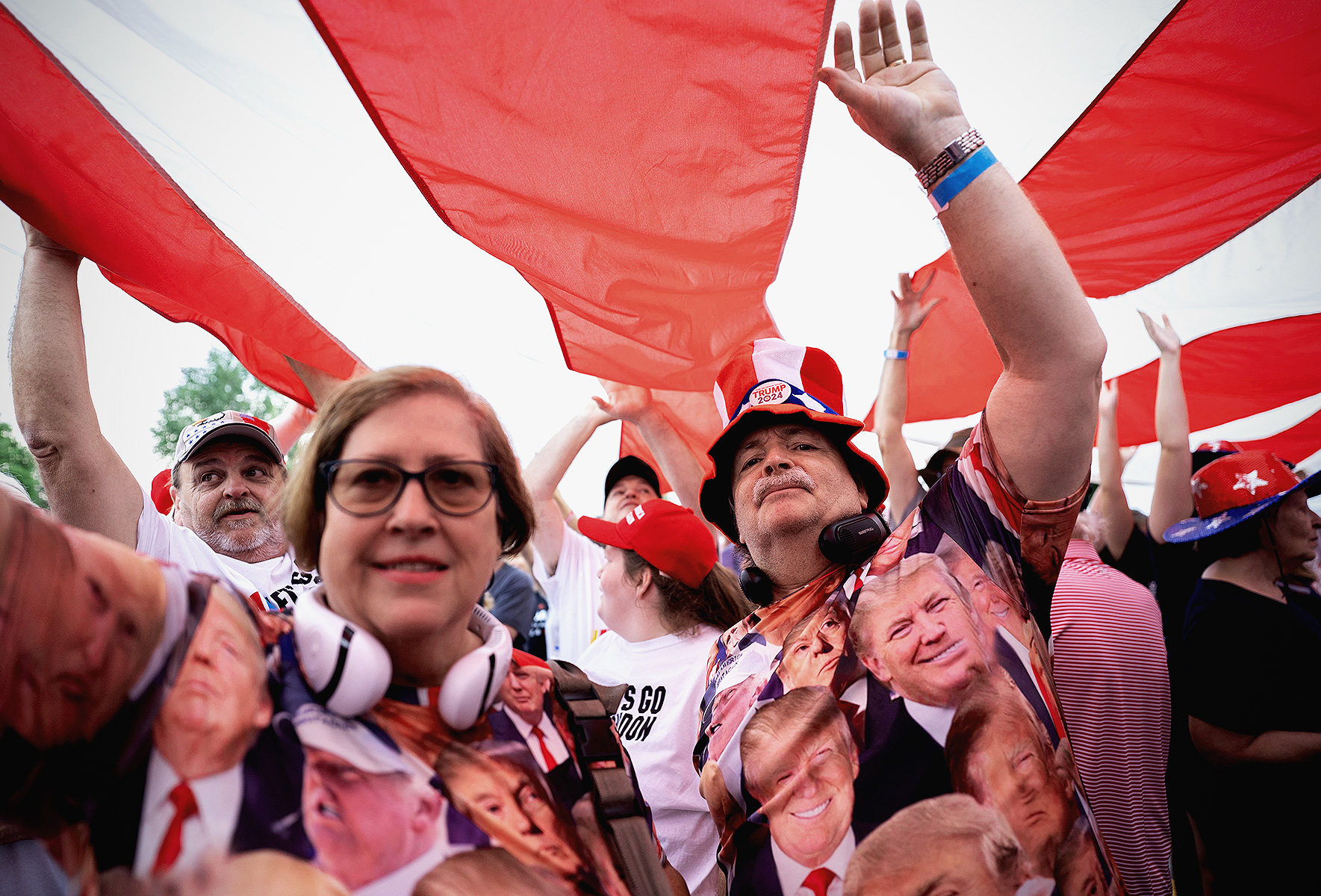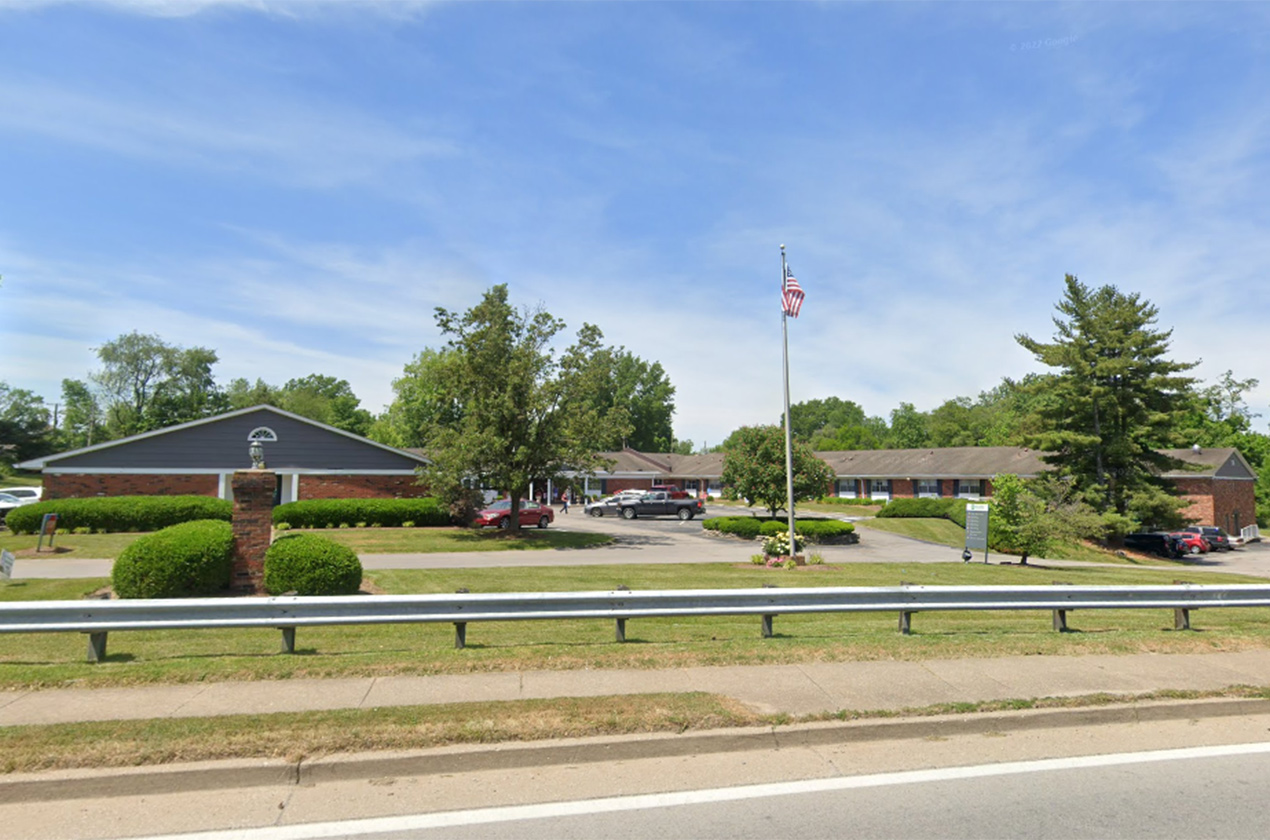A grand jury is due to be sworn in on Tuesday in Georgia that could vote that Donald Trump should face charges over allegations he committed a crime while trying to overturn the 2020 election.
For two and a half years, Fulton County District Attorney Fani Willis' office has been investigating Trump and his allies over their actions in the days and weeks after President Joe Biden won the last presidential election. Trump has frequently denied any wrongdoing and has called the probe a "witch hunt" against him.
Willis' investigation originally focused on Trump's January, 2021 phone call with Georgia's Secretary of State Brad Raffensberger in which the former president asked him to "find" 11,870 votes, which would have helped him beat Biden in the last election.
The probe has since expanded into other areas, including allegations the former president and his allies plotted to send a group of fake electors to falsely claim that Trump had won Georgia in 2020.
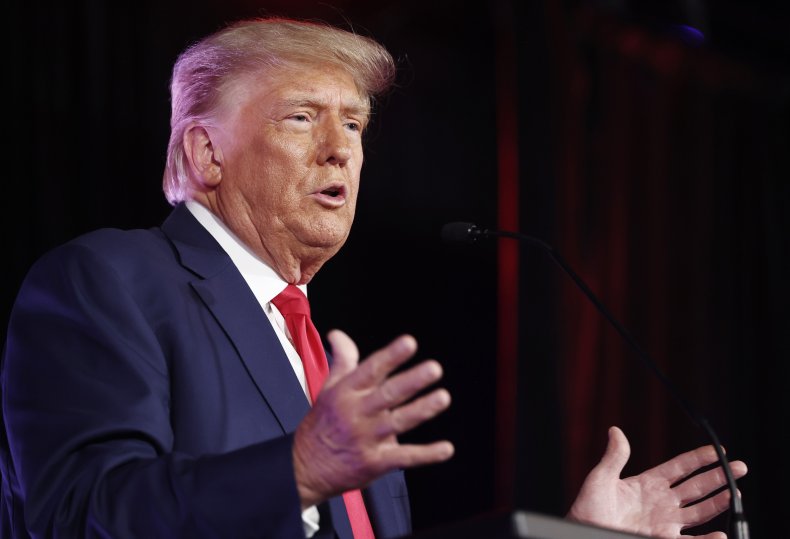
As part of the inquiry, a grand jury will now be seated on July 11. It will decide if Willis' team has enough evidence to bring forward charges, and who could face indictment.
Trump, who is the frontrunner in the GOP presidential primary has already been indicted in New York over falsifying business records allegations, as well as under Special Counsel Jack Smith's classified documents probe.
"A grand jury evaluates, basically, the facts of the case and decides whether or not the district attorney's office has probable cause to indict an individual," defense attorney Jessica Cino told Georgia news station WSB-TV. She added that it is not up to the grand jury to rule if any person named in the investigation is guilty or not of the allegations.
"They're deciding whether or not this case is going to pass go and move into what we would call the trial phase. They don't decide guilt. They don't decide if this person is getting acquitted," Cino said.
After the prosecution lawyers have presented their evidence, the grand jury will vote on whether to bring forward any indictments. Following private discussions, the grand jury will decide on whether to return a "true bill" ruling, meaning there is probable cause to believe that a person or persons has committed an alleged crime, or a "no bill," meaning the grand jurors do not believe the person committed a crime or there is not enough evidence to indict.
At least 16 jurors must take part in the voting, with a minimum of 12 votes needed for an indictment to be brought forward. If the grand jury votes against an indictment, prosecutors can present the case again to a different grand jury.
Previously, a special grand jury that spent months hearing evidence and witnesses' testimonies as part of Willis' probe, suggested that it would recommend that charges be brought forward for several people in the investigation.
Emily Kohers, who was part of the special grand jury and gave several media interviews discussing some aspects of its work, told The New York Times in February that there won't be "some giant plot twist," when asked if Trump was at risk of indictment.
Unlike the regular grand jury being seated on Tuesday, a special grand jury cannot bring forward any indictment, and can only make recommendations based on the evidence it heard.
It was previously suggested that any decision to charge Trump by Willis' office may not arrive for a few more weeks.
Willis has instructed most of her staff to begin working remotely from July 31 to August 18. Willis also requested that judges not schedule trials or in-person hearings during these weeks in what is considered a strong indication that charges could be announced around then.
Newsweek contacted Trump's legal team via email on Tuesday for comment.
